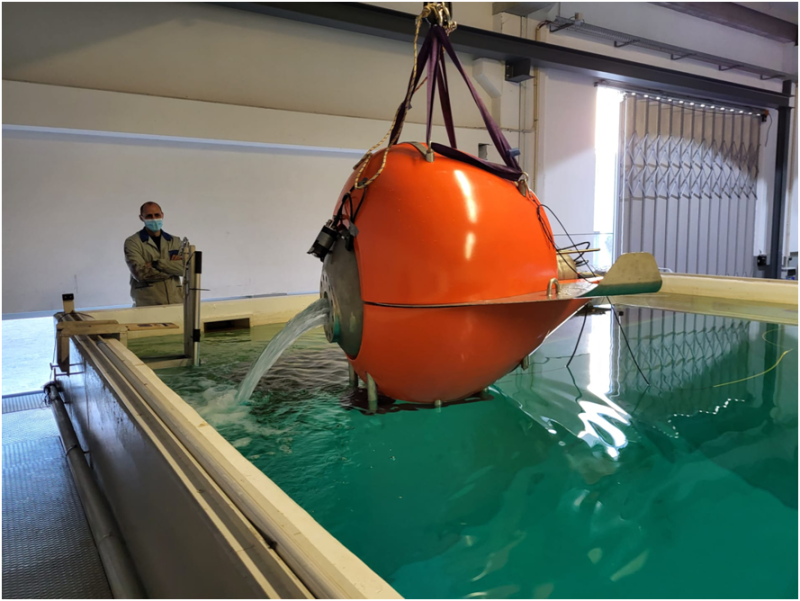Capture Marine Species in Depth
 2022-04-27 (IPMA)
2022-04-27 (IPMA)
Portuguese researchers test hyperbaric system for capturing and conserving deep-sea marine species
Researchers from IPMA, A. Silva Matos Metalomecânica, Institute for Systems and Computer Engineering, Technology and Science (INESC TEC), Instituto Superior de Engenharia do Porto (ISEP) and the Interdisciplinary Center for Marine and Environmental Research (CIIMAR) developed a system for capturing and conserving species up to 1000 meters deep.
This solution makes it possible to bring the species to the surface without damage caused by pressure differences, and keep them alive for further studies. The first demonstrations of this technology will take place between the 23rd of April and the 2nd of May, aboard the Research Ship Mário Ruivo.
The deep sea constituted one of the last frontiers of the planet, with enormous potential for the exploitation of bio resources associated with the particular organisms and rare substances that can be found in these regions. However, deep sea research has been very little developed due to the extremely hostile environment, in particular the high pressure in these areas.
“Knowledge of deep sea species is still incipient. However, the first research programs focused on these resources showed that these marine organisms could have great potential for use by the pharmaceutical and food industries”, explains Diana Viegas, researcher at INESC TEC.
IPMA´s responsible researcher for thia campaign, Antonina dos Santos, refers “Through this project we have developed a collection and maintenance system, in captivity, which will allow us to increase our knowledge of the life cycle and biology of deep-sea marine animals. This campaign is intended to test the ability to capture living organisms in the sea floor and in the water column at different depths, up to a maximum of 1000 m, their transfer to a hyperbaric chamber on the surface and their maintenance in good physiological conditions.”
The components developed include a mobile hyperbaric infrastructure that allows the collection of living organisms in the deep sea under conditions of high pressure, low temperature (or extremely high, in the case of proximity to active volcanoes or hydrothermal vents) and low luminosity, and an infrastructure that transfers it to another hyperbaric chamber, which will mimic the seabed environment on the surface in the relevant physical parameters for the maintenance of the species' life and functioning as an aquarium.
IPMA and CIIMAR Researcher and coordinator of this mission, Antonina dos Santos, explains “This equipment contains components that control the chemical parameters that allow the life of organisms within the hyperbaric system, as well as, for example, pressure, temperature, light, food, corrosion and salinity”.
The system was developed under the project “HIPERSEA - Hyperbaric System for the Collection and Maintenance of Deep Sea Organisms” (POCI-01-0247-FEDER-033889), funded by the COMPETE 2020 program at approximately three million euros.
The Sea Test Campaign will take place between the 23rd of April and the 2nd of May, on the Mário Ruivo vessel at the southwest coast of Portugal.
More information: info@ipma.pt | T. 218 447 000
Imagens associadas

